Normal Rhyming Worksheets for Ages 6-8
13 filtered results
-
From - To
Unlock the power of phonetics with our Normal Rhyming Worksheets for Ages 6-8. Specially designed to blend fun with learning, these engaging activities help young learners grasp essential rhyming patterns and improve their reading fluency. Each worksheet provides a variety of rhyming exercises, from matching words to creating rhyming pairs, ensuring your child builds a strong phonemic foundation. Ideal for first and second graders, our printable worksheets make language arts enjoyable and educational. Download today to help your child discover the joy of rhyming and open the door to advanced reading skills with confidence.


Rhyming Words: Assessment Worksheet


Rhymes in Poems Worksheet
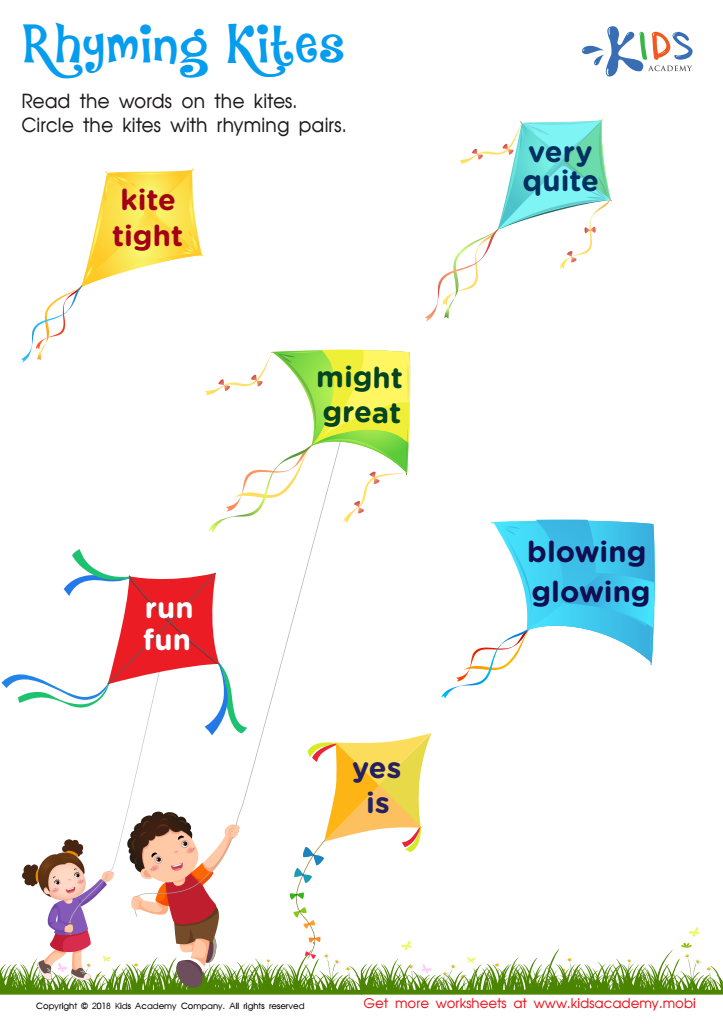

Rhyming Kites Worksheet
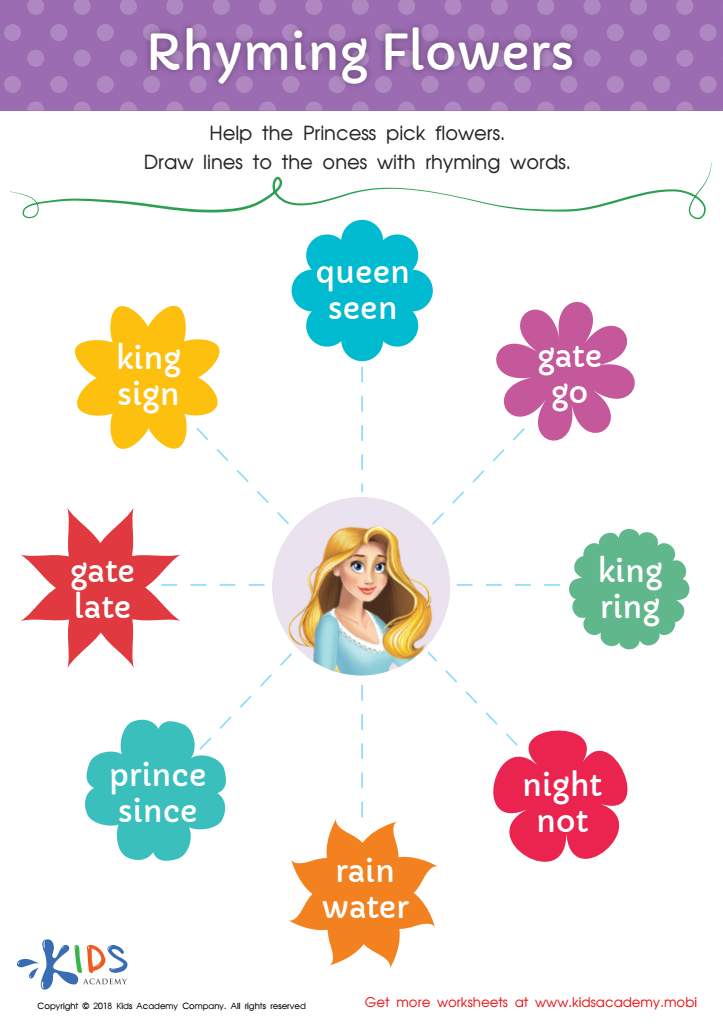

Rhyming Flowers Worksheet


Rhyming Words Rhyming Worksheet
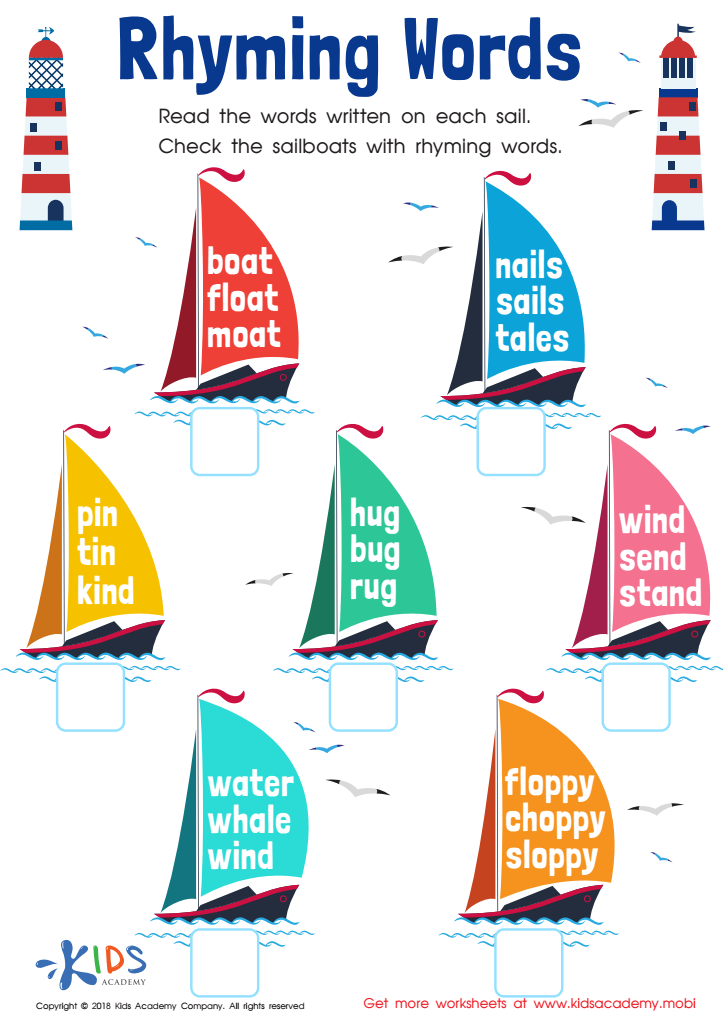

Rhyming Words Worksheet
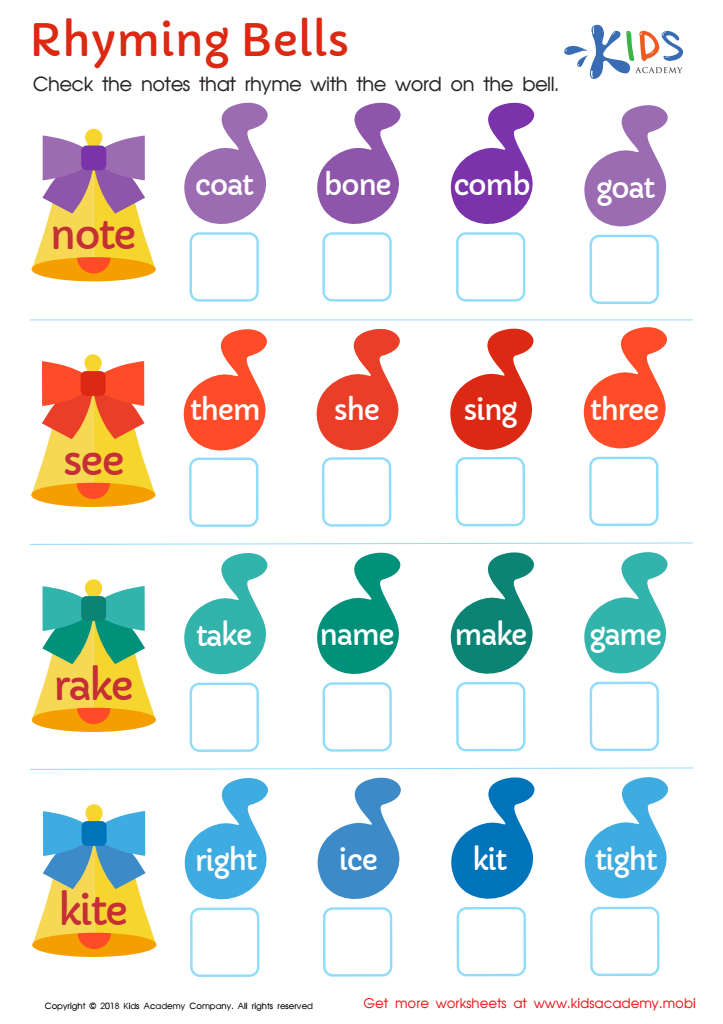

Rhyming Bells Worksheet


First Words: Picture Rhymes Worksheet
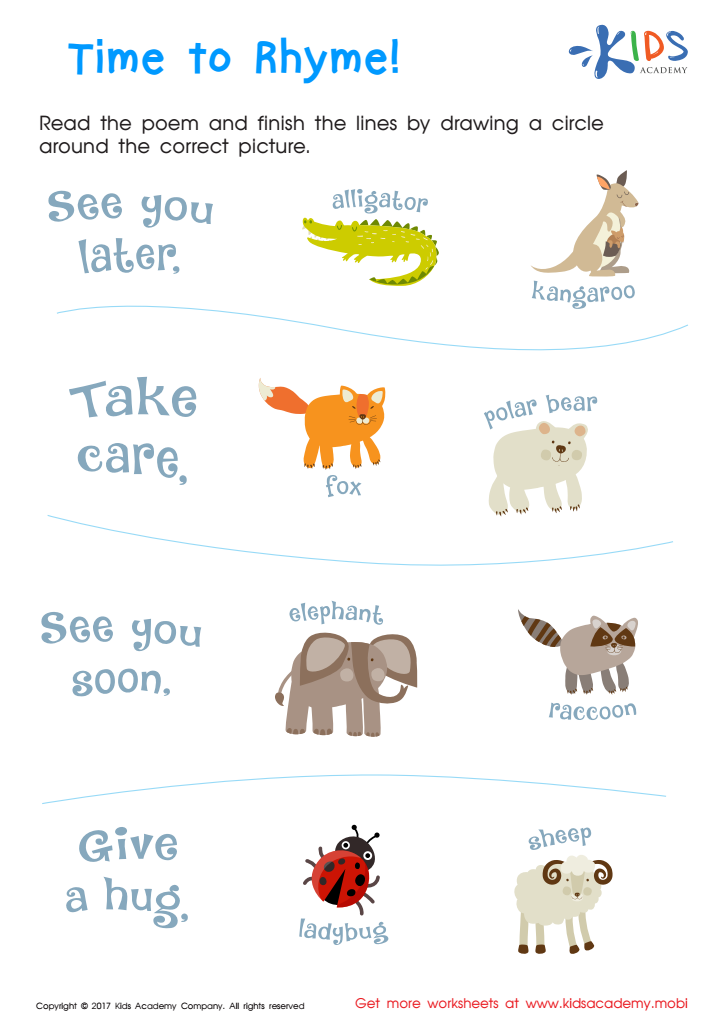

Time to Rhyme Rhyming Worksheet
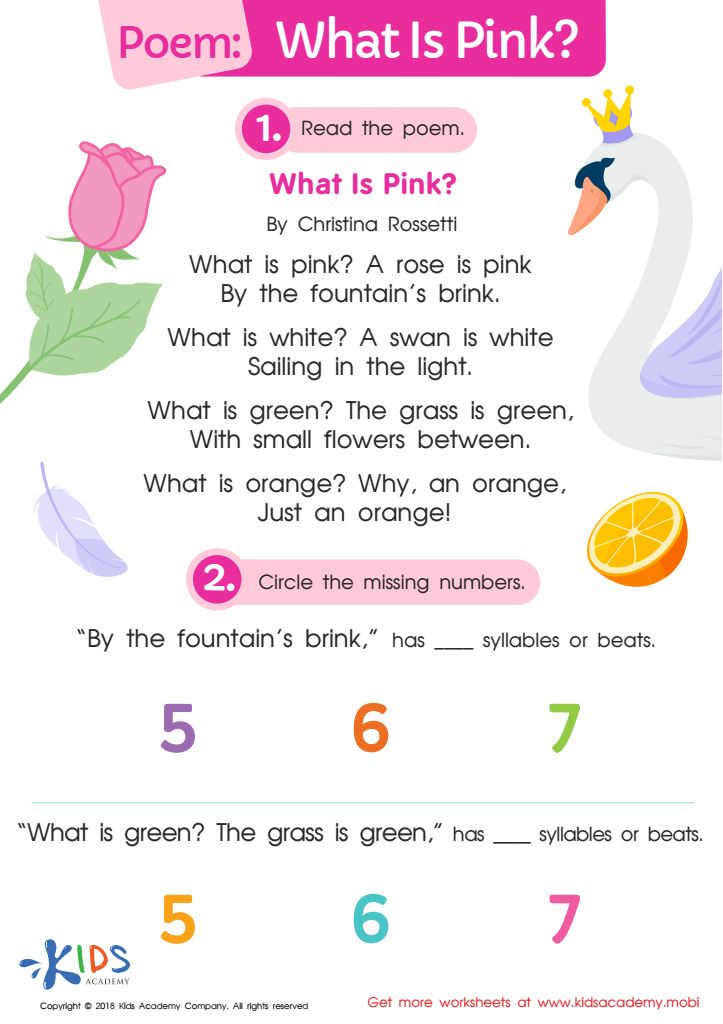

Poem: What Is Pink? Worksheet
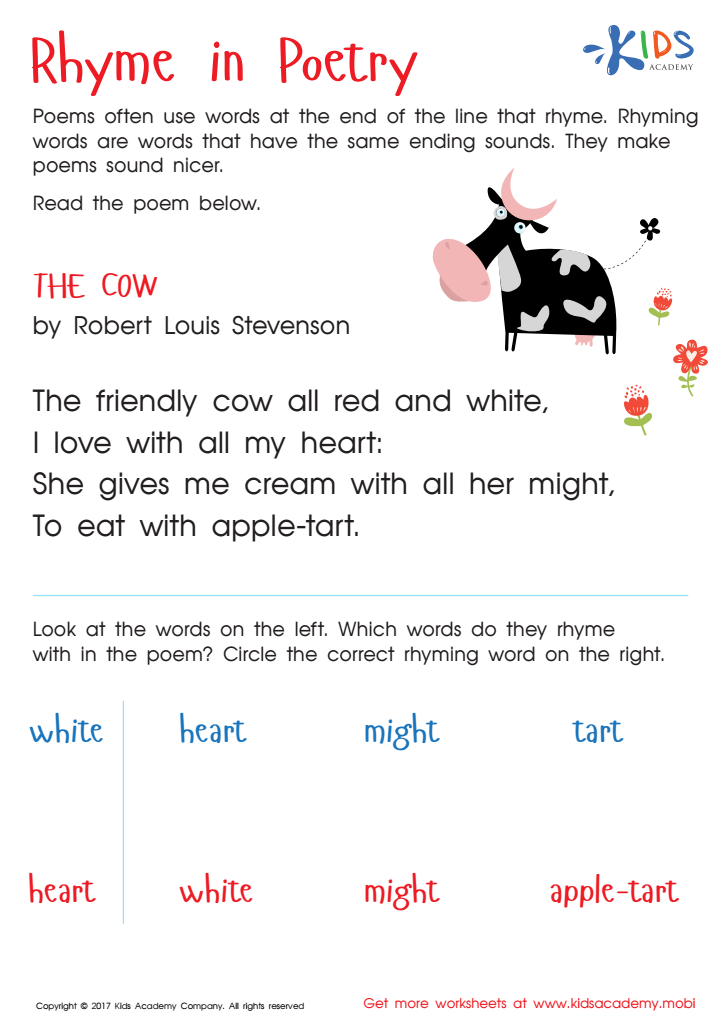

Rhyme In Poetry Worksheet
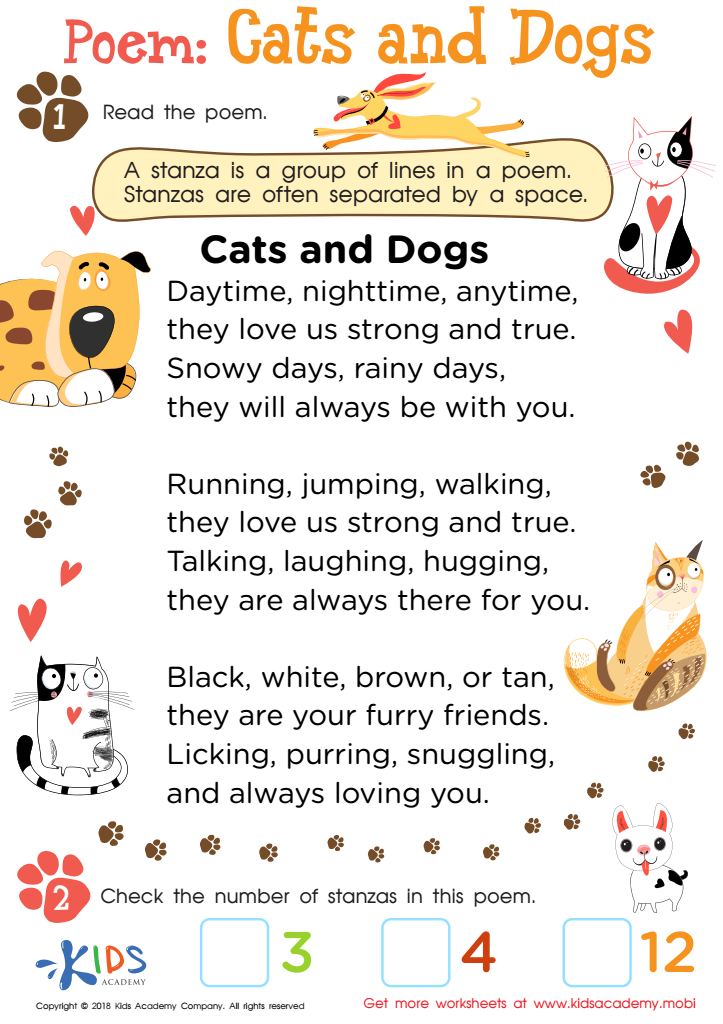

Poem: Cats and Dogs Worksheet
Rhyming is a fundamental aspect of early language development that significantly benefits children aged 6-8. Firstly, it enhances phonemic awareness, which is the ability to hear, identify, and manipulate individual sounds in spoken words. This skill is critical for developing reading fluency and lays the foundation for proficient reading and spelling.
Rhyming activities often involve fun and engaging games, helping to capture children's attention and foster a love for learning. It boosts memory retention by providing patterns that make it easier for young minds to recall information. Additionally, exposure to rhyming can expand a child's vocabulary as they encounter a variety of words that sound similar but may have different meanings.
Understanding rhymes aids in developing listening skills and improving auditory discrimination. Children become more adept at recognizing different sounds and associating them with written symbols, which is essential for decoding words during reading.
Furthermore, rhyming can also encourage creativity and self-expression. When children create their own rhymes, they practice using their imagination and exploring language in a playful context, reinforcing their grasp of linguistic structures without feeling pressured.
In sum, integrating rhyming activities in the early years is not just about learning to read; it's about equipping children with a robust set of language skills that will support their academic journey and beyond.

 Assign to My Students
Assign to My Students



















